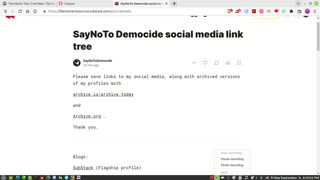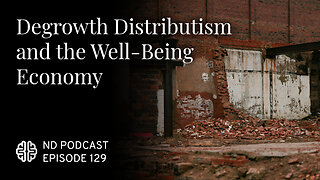How Hungary’s Family Incentives Created a ‘Workfare Society’: Miklós Szánthó
American Thought Leaders
“The idea is to have a workfare society, where everyone who is able has the possibility to work, to join the labor market. And if you work and pay taxes, then you get a very generous state benefit or tax benefit system, lowering the money you should give back to the state,” says Miklós Szánthó.
In this episode, I catch up with Mr. Szánthó at the Conservative Political Action Conference (CPAC) in Washington. He is the chairman of CPAC Hungary and The Center for Fundamental Rights.
“The left tries to transform every and each human desire into a human right. If you feel yourself a lady and would like to give a legal status to that, it is in your right because that is your desire. That is your personal will. ... I would rather use [a] common sense approach to fundamental rights,” says Mr. Szánthó.
“The progressives do think that every and each right, every and each institution is or are the construction of the people. So, if it is the construction of the people, ... then those institutions [and] those rights can be deconstructed. The family can be deconstructed because it is just a social institution. The so-called gender roles can be deconstructed or changed because those are just social habits and constructions.”
We discuss Prime Minister Viktor Orbán’s conservative principles, his labor and family policies, and how these have dramatically altered the social environment in Hungary.
“The number of abortions in Hungary halved in the past 10 years without any type of modification, without any type of amendment to the respective law on abortion, because not only the behavior of the state changed, but the social circumstances, the social feeling, [and] the social environment changed into being a much more family-friendly country. ... It’s trendy, it’s fancy, [and] it’s sexy to have a family and to have more children.”
Views expressed in this video are opinions of the host and the guest, and do not necessarily reflect the views of The Epoch Times.
-
 5:46
5:46
Right Edition
1 year agoLiberals Hatred of Family Unit - Welfare Pays More Than Work
1361 -
 10:33
10:33
SayNoToDemocide
4 months agoWelfare state and how to fix welfare. - AmericaBad - America Versus Europe And The World
15 -
![[2023-07-19] How Hungary has evolved from Its Communist Past](https://hugh.cdn.rumble.cloud/s/s8/6/U/f/U/6/UfU6k.0kob.jpg) 5:26
5:26
ninjaman1994
10 months ago[2023-07-19] How Hungary has evolved from Its Communist Past
72 -
 12:17
12:17
senatormalcolmroberts
9 months agoSoviet-Style Rule in Australia Under Labor
2923 -
 1:08:06
1:08:06
ReasonTV
1 year agoCan governments increase birthrates? Should they?
4631 -
 48:00
48:00
Szkeptikus Kerekasztal
1 year agoHow has eugenics influenced and transformed Hungary, Europe and the West? (ANGOL VERZIÓ)
334 -
 14:00
14:00
Dr Steve Turley
3 years ago $2.98 earnedHungary Amends Constitution to Recognize Parents as Male and Female!!!
5.91K36 -
 2:58:15
2:58:15
New Discourses
6 months ago $0.40 earnedDegrowth Distributism and the Well-Being Economy
2.26K1 -
 7:57
7:57
TrueNorthCentre
2 months ago $0.22 earnedFixing Hungary's fertility crisis - Miklós Szántó, CPAC Hungary chairman
3.11K4 -
 28:17
28:17
Vivek Ramaswamy
11 months agoPro-family Policies & Economic Prosperity with Balázs Orbán | The Vivek Show
4633